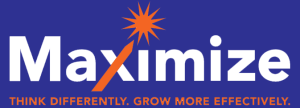I had coffee this morning with Mark Drapeau, National Defense University fellow and author of two terrific recent and impressive articles on Mashable about government 2.0. As I was driving to my DoD office afterwards, I was thinking about the implications of government 2.0 and began to establish this concept of collaborative government.
Now, for the first time in history, we have the opportunity to truly live the “we the people” vision of our founding fathers. Social media’s collaborative capabilities can level the playing field for us–the people–to create, improve, and manage our country as could previously only be envisioned.
Of course, we’re really just at the beginning of this new era. 72% of Americans are online. According to Universal McCann’s recent “Media in Mind” tracking study, 50% of Americans are using social media today. This study shows that only 10% of Americans blog. Although this is just one indicator of engagment and active participation in social media, it’s an important one.
It’s one thing to have a broadband connection, it’s another to usethe Internet. It’s one thing to set up your Facebook profile, and quite another to be proactively and regularly collaborating via a social network. The difference that I’m poking at is between attending an event and participating in a conversation. The former is very much of a Web 1.0 metric, the latter–harder to measure and gauge–is what social media is all about: collaboration.
As our population has grown beneath the shadow of the broadcast media era, citizens have lost involvement in and ownership of their government. Many view The Government as a impenetrable fortress around which they must navigate. I live in Washington, DC. I drive past the Capitol, the White House, and the myriad marble government buildings and icons, daily. It’s easy to develop this perception.
But this is not the spirit of America. Our government is of the people, for the people. The rapid evolution of social media solutions provide government agencies with opportunities to leverage the best minds across the country to solve their biggest challenges. This is my concept of collaborative government.
There are a number of private organizations–Understanding USA and Personal Democracy Forum, being two–leading the charge to bridge this gap for citizens by utilizing social media tools to break down the perceived fortress and encourage citizen-government interaction. As important and in the right spirit as these organizations may be, and as accessible and interactive as they make government information and data, the interaction still occurs outside the government “fortress.” To maintain the safety and security of our country, this must, in many cases, remain. Therefore, only government agencies–protectors of information and data–can initiate true citizen-government collaboration.
NASA‘s blog, OpenNASA.com, is a great example of one agency understanding this and trying to engage and appeal to its next generation of advocates–and prospective employees. The Department of Defense, is working to create a social media wiki that enables a collaborative dialogue about Defense needs and applicable industry innovations. The State Department has created “virtual embassies” that enable valuable interaction with U.S. citizens and foreign nationals.
As social media tools evolve, there will be more and more ways for government agencies to initiate a collaborative government. What if USA.gov were to add a collective ratings layer, similar to the functionality of Yelp or Digg, to enable users to help users find the most valuable and relevant information across the government?
The possibilities for creating our collaborative government will be endless. Our government agencies must not just advocate social media, but truly embody its collaborative spirit–the spirit upon which our country was founded.
Medication errors can happen anywhere, but you can protect yourself. There are many of legal online drugstores that will offer legitimate discounts. Certainly it isn’t all. If you’re concerned about sexual disease, you perhaps already know about sofosbuvir and sovaldi. What professionals talk about sofosbuvir hep c? (Read more sovaldi). The signs of sexual problems in men include inability to maintain an erection sufficient for sexual functioning. Happily many problems with sexual health can be treated. Before purchasing Kamagra or any other generic, discribe your doctor your soundness condition. Health care purveyor may order definite tests to rule out any other problems that may be contributing to the dysfunction. Get vocational help if you have any of these signs of a side effect to the remedy. If the preparation you are taking is not approved, your physician can prescribe another prescription medicine.

Leave a Reply